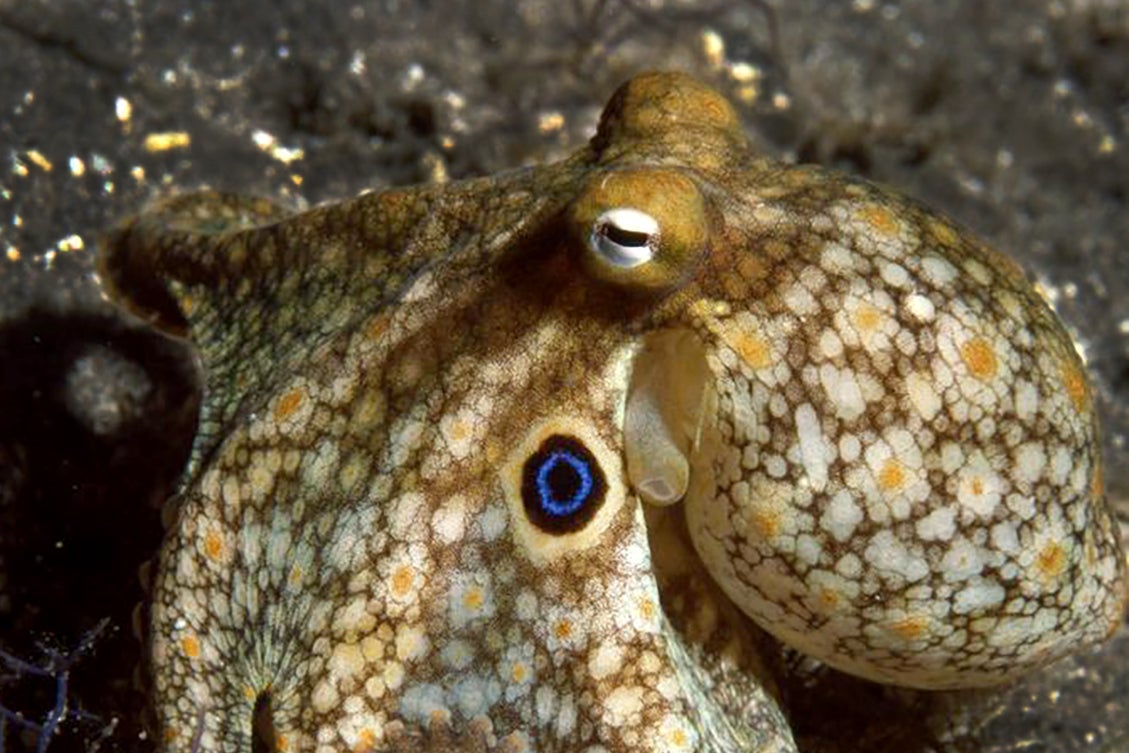
Octopuses are among the smartest animals on the planet—and some of the strangest. They have about the same number of neurons as dogs, but more than half of those cells are distributed across the slippery cephalopods’ eight arms rather than contained in a central brain.
As researchers report on June 8 in Cell, the neural anomalies only get more bizarre from there. Octopuses, they found, have the ability to recode their neurons in response to temperature shifts so those cells produce different proteins. Like people adjusting their clothing to match the weather outside, octopuses edit their RNA, which is a genetic molecule that carries DNA’s instructions to produce proteins—the workhorses of cells. The researchers suspect those “brain edits” help octopuses adapt to heat or cold when the seasons change. And they do this to “an extraordinary extent,” says co-senior author Joshua Rosenthal, a biologist at the Marine Biological Laboratory in Woods Hole, Mass.
RNA editing happens when an outside force activates certain enzymes inside the body’s cells that then make chemical changes to the RNA. Depending on the changes, the cells produce different forms, or isoforms, of proteins. Because RNA is a transient molecule, any changes made to the genetic information it carries will not be permanent—a feature that, in theory, makes it a powerful tool for on-the-go acclimation to changing environmental conditions.
In humans, RNA editing affects protein production in fewer than 3 percent of genes, whereas Rosenthal and his colleagues previously found that all sophisticated species of cephalopods—that is, all cephalopods other than nautiluses—can recode the majority of neural proteins.
The researchers wanted to follow up on that earlier work to see what factors might drive RNA editing in cephalopods. They started with temperature change because it’s a straightforward environmental condition that fluctuates seasonally, or even daily.
The scientists first collected a dozen wild California two-spot octopuses (Octopus bimaculoides), a species whose genome has already been sequenced. They acclimated the animals to tanks that held either warm or cold water. Several weeks later, the researchers examined around 60,000 previously identified sites in the animals’ genomes where enzymes edit RNA. They found that about one third of those sites had changed and that these changes happened quickly, on the scale of hours to a few days. “We expected to see here and there a few sites that had changed, but no, this was something very global,” says co-senior author Eli Eisenberg, a physicist at Tel Aviv University, whose research focuses on RNA.
Almost all the changes were cold-induced, the team found. And among those changes were ones that encoded for specific classes of proteins involved in cell membranes, functions of synapses (which transmit neuronal signals), autophagy (programmed cell death) and the binding of calcium (which plays various roles within neurons). The researchers confirmed that the isoforms created via the edited RNA had altered functions, but “we do not know yet how these thousands of changes, or some of them, promote adaptation,” Eisenberg says. “Understanding the global effect of all the changes in concert is left for future studies.”
Finally, the team also collected wild octopuses—including another closely related species, Verrill’s two-spot octopus (Octopus bimaculatus)—in summer and winter. Those individuals, the researchers found, exhibited the same temperature-tracking RNA-related changes as the California two-spot octopuses they had tested in the lab.
Unlike humans and other mammals, octopuses can’t regulate their own temperature. So the researchers suspect that RNA editing plays a role in protecting the invertebrates’ neurons from temperature fluctuations. “The organism chooses to express different isoforms, and each one is better in its own condition,” Eisenberg says. “There’s not even a single example of that happening in mammals.”
Heather Hundley, a biologist at Indiana University Bloomington, who was not involved in the research, calls the new paper “a true tour de force.”
“This work adds to the growing body of data demonstrating that RNA editing can be dynamically regulated,” she says. “While previous work has primarily focused on regulation during development and disease, this work demonstrates that RNA editing can serve as a molecular means to acclimate protein function in response to environmental changes in temperature.”
Rosenthal, Eisenberg and their colleagues plan to continue this line of study by investigating additional factors that might trigger changes in protein production, such as pH and oxygen levels or the social environment. “How broad is this ability to acclimate through RNA editing?” Rosenthal says. “There’s a lot of interesting work to be done.”
























































